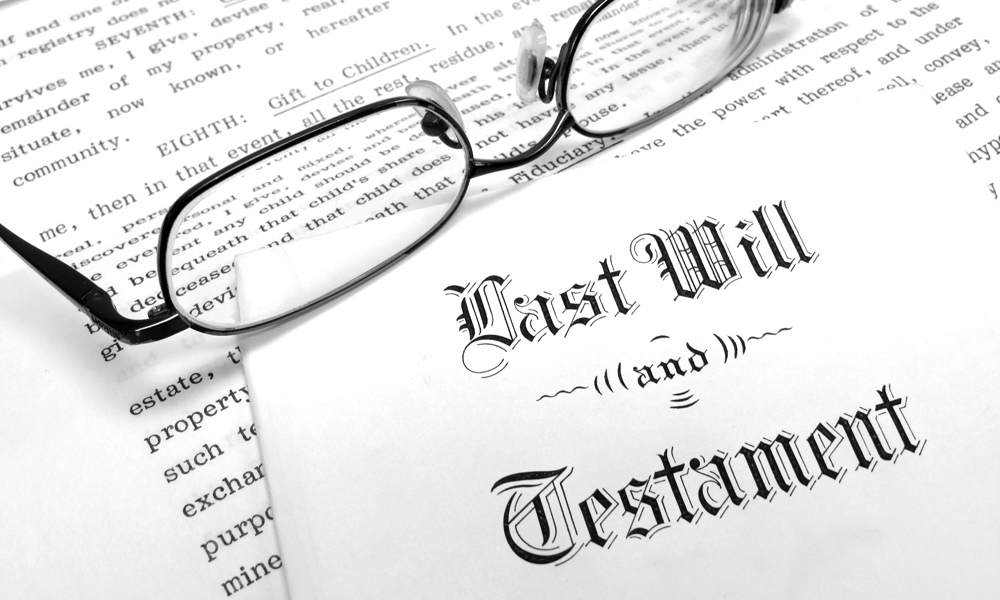Let’s begin with a single-sentence answer: If you have particular wishes relating to the distribution and taxation of your assets, the designation of a surrogate for your business or the nomination of guardians for your kids, and you desire to maximize the likelihood that those wishes are actually implemented, I urge you to take control of the process by establishing a well-thought-out estate plan incorporating trusts.
But, let’s be honest. Even if you employ a professional planner, the process of fashioning and nurturing a dynamic, up-to-date estate plan, particularly one that employs trusts is, well, a hassle. Here is what I say to clients about that: “You can endure a hassle now, or have your heirs endure a hassle or much worse later.”
Also, if you are one of the persons relying solely on a will, remember: Almost all wills go through probate, so it might cost your heirs dearly in terms of time, attorneys’ fees, court costs and lack of privacy.
You can endure the hassle of creating an estate plan with trusts now, or have your heirs endure it later.
A surprising number of high net worth families are convinced that a last will and testament will suffice in tidying up their affairs after they are gone. If you are among them, I strongly suggest that you create an estate plan now. If you already have an estate plan, let me ask two questions: 1) Does your plan include any trusts? 2) With or without trusts, when is the last time you reviewed your estate plan?
If your answer to question two was any date before November 8, 2016, you should revisit your estate plan as soon as possible. Point being that whether it’s a new political party running the country, new laws or a new divorce/marriage/mortality/ behavioral issue in the family, change of any kind should prompt a review of your estate plan. And change, as the saying goes, is inevitable and constant.
As to trusts, space constraints do not allow a deep dive into how they benefit an estate plan, but here are some key informational points and benefits:
- For many people “trusts” have a negative connotation. They associate them with spoiled “trust fund babies” and/or their own death. But there are also two types of “living trusts” which allow for some distributions of your assets while you are still around. “Irrevocable trusts,” as the name implies, are basically unchangeable. “Revocable trusts” allow you to make changes whenever you see fit.
- You can set up both types of living trusts, irrevocable for static estate elements and better tax protection, and revocable for more volatile elements such as human behavior. For example, your “free-spirited” son can receive his inheritance paid out in small amounts over his lifetime, rather than in a lump sum.
- Within your estate plan, you can designate multiple powers of attorney. There can be a “property” power of attorney that deals with assets, and a “healthcare” power of attorney that oversees issues such as incapacity options and end-of-life decisions. Also, within your estate plan, you can include a “pour over will” for anything not titled in your trust. Because the will “pours over” into your trust, none of the will’s assets go through probate court.
That said, the pour over will also assign guardians for your children, a painful detail that is essential to address. Not naming a legal guardian can turn into a hurtful divisive family issue and further traumatize the children.
A final note: After years of counseling clients, I know that it doesn’t matter how old we are or how old our kids are: Planning for a world that does not include us is difficult, and for some people almost impossible. But if you do plan for it, and plan well, your children will thank you, as will the children in your family for generations to come.
Investing involves risk. Investment return and the principal value of an investment will fluctuate, and an investor’s shares, when redeemed, may be worth more or less than their original cost. Advisory Services offered through Strategic Financial Group, LLC (dba SFGI, LLC in Illinois), a Registered Investment Advisor.
















